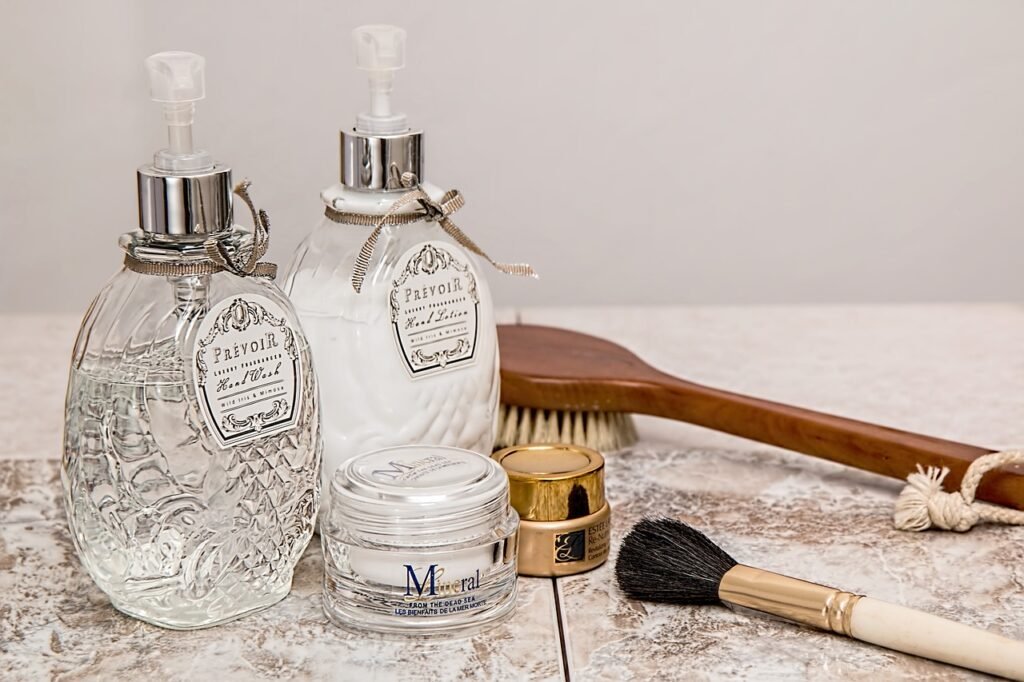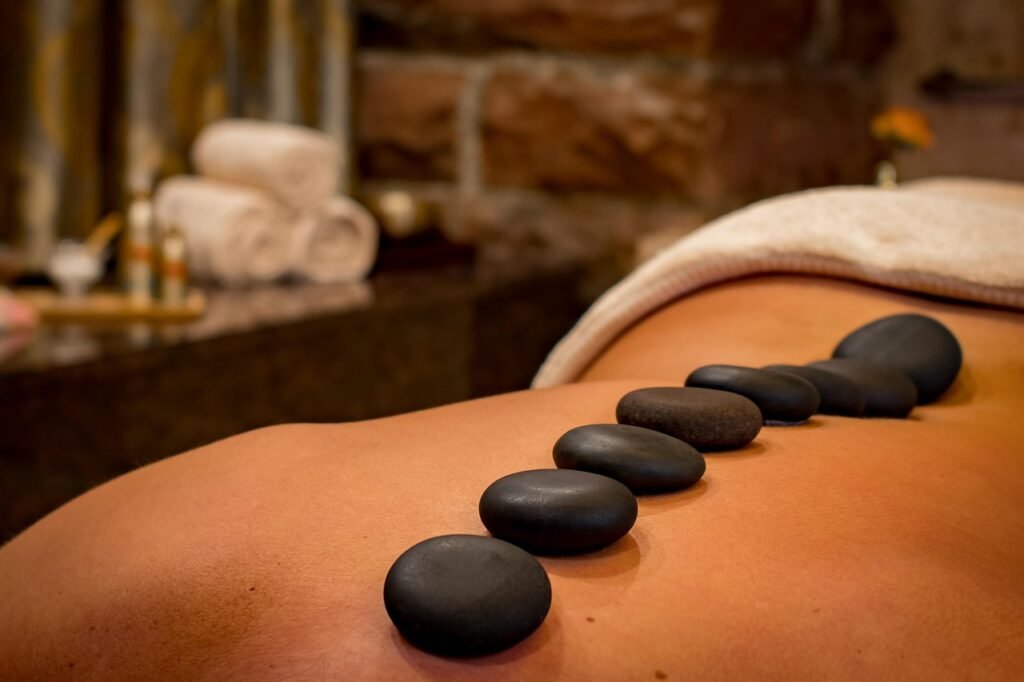Your Skin Type. This Is The Foundation For Any Known Good Skincare Routine. Once You Know Your Skin Type (oily, Dry, Combination, Or Sensitive), You Can Choose Products That Are Formulated To Address Your Specific Concerns.
Understanding your skin type is crucial for developing a successful skincare routine that caters to your specific needs. Whether your skin is oily, dry, combination, or sensitive, knowing your skin type is the foundation for achieving a healthy complexion. Once you identify your skin type, you can select products that are specially formulated to address your specific concerns. Furthermore, using the right makeup brushes can significantly enhance the way your makeup looks and applies. Opting for high-quality brushes that are tailored to the task at hand can make all the difference in achieving a flawless finish.
Understanding Your Skin Type
Your skin type is the foundation for any good skincare routine. Once you know if you have oily, dry, combination, or sensitive skin, you can choose products that are formulated to address your specific concerns. Understanding your skin type will help you customize your skincare routine, select the right products, avoid irritation, and effectively treat underlying skin issues.
Oily Skin
If you have oily skin, you may notice that your face tends to produce excessive sebum, giving it a shiny appearance. Oily skin is also prone to acne due to the excess oil clogging your pores. The characteristics of oily skin can be frustrating, but with the right skincare routine, you can manage it effectively.
To care for oily skin, start with a gel or foaming cleanser that can remove the excess oil without stripping your skin of essential moisture. Follow up with an alcohol-free toner that balances the pH levels of your skin and helps control oil production. Use an oil-free moisturizer to hydrate your skin without adding unnecessary oil.
Exfoliation is essential for oily skin to unclog pores and prevent breakouts. Consider using a gentle chemical exfoliator that can effectively remove dead skin cells without causing irritation. Additionally, using a clay mask once or twice a week can help absorb excess oil and tighten your pores. If you have acne or breakouts, spot treatments specifically designed for oily skin can target those areas.

This image is property of pixabay.com.
Dry Skin
Dry skin is characterized by a lack of natural oils, resulting in a tight and sometimes flaky complexion. Your skin may also appear dull due to the lack of hydration. Nourishing and hydrating your skin is key to managing dryness and maintaining a healthy glow.
For dry skin, opt for a cream cleanser that can moisturize your skin while effectively removing impurities. Follow with an alcohol-free toner that replenishes moisture and prepares your skin for hydration. Look for a rich moisturizer that contains emollients to nourish your dry skin.
To add an extra boost of hydration, incorporate a hydrating serum into your routine. It provides intense moisture and helps lock it in. Gentle exfoliation is essential for removing dead skin cells and promoting cell turnover, but be sure to choose a mild exfoliator to avoid exacerbating dryness. Using a hydrating mask once a week will provide your skin with an intense dose of moisture.
Combination Skin
Combination skin is characterized by having oily areas, usually in the T-zone (forehead, nose, and chin), and normal to dry areas, often on the cheeks. Choosing the right skincare products for combination skin is all about finding the right balance.
Start your skincare routine with a foaming cleanser that can remove excess oil without drying out your skin. Follow up with a balancing toner to restore the pH levels of your skin and control oil production in the T-zone. Use a lightweight moisturizer that can hydrate your skin without leaving a heavy residue.
Exfoliation is crucial for combination skin. Consider using a dual exfoliation approach, where you focus on exfoliating the oily T-zone more intensely while gently exfoliating the drier cheeks. This will help manage oiliness and maintain hydration levels. Incorporating a sheet mask into your routine can target both the oily and dry areas with specific formulas.

This image is property of pixabay.com.
Sensitive Skin
Sensitive skin is easily irritated and reactive to skincare products. It may be prone to redness and can become easily inflamed. Taking gentle care of your sensitive skin is incredibly important to maintain its health and prevent adverse reactions.
Start your skincare routine with a gentle cleanser that is specifically formulated to avoid aggravating sensitive skin. Look for products that are fragrance-free and hypoallergenic. Following cleansing, use a soothing toner that can calm and hydrate your sensitive skin.
Opt for a hypoallergenic moisturizer that does not contain fragrances or additives, as these can cause irritation. Minimal exfoliation is key for sensitive skin to avoid any harsh exfoliants that may cause redness or inflammation. Instead, focus on gentle products that promote hydration and soothe your skin. Using a soothing mask once a week can further calm your sensitive skin.
Determining Your Skin Type
Determining your exact skin type is crucial for developing an effective skincare routine. Here are a few methods you can use to determine your skin type:
-
Observation: Take a close look at your skin and observe its shine, texture, and dry areas. Oily skin will have a noticeable shine, while dry skin may have flakiness and a tight texture. Combination skin will exhibit both shine and dry areas, while sensitive skin may appear red or inflamed.
-
Blotting Test: Take a tissue paper and press it against different areas of your face. If the tissue paper picks up oil, you likely have oily skin. If there is minimal oil, you may have dry or combination skin.
-
Skin Reaction Test: Patch test new skincare products on a small area of your skin, such as behind the ear or on the jawline. Observe how your skin reacts to the product. If you experience any redness, itching, or irritation, you may have sensitive skin.
-
Consultation with a Dermatologist: For a professional assessment, consider consulting a dermatologist who can closely examine your skin and help determine your skin type. They can provide personalized recommendations based on their expertise.

This image is property of pixabay.com.
Importance of Knowing Your Skin Type
Knowing your specific skin type is essential for various reasons:
-
Customizing Skincare Routine: Once you know your skin type, you can tailor your skincare routine to target specific concerns. By using products formulated for your skin type, you can effectively address any issues you may be experiencing.
-
Product Selection: Choosing skincare products that are suitable for your skin type ensures that you are using formulations that will work well with your skin. This increases the chances of seeing positive results and minimizes the risk of irritation or adverse reactions.
-
Avoiding Irritation: Using the wrong products for your skin type can lead to breakouts, redness, and discomfort. By understanding your skin type, you can avoid ingredients or products that may trigger irritation and keep your skin healthy and calm.
-
Effective Treatment: Understanding your skin type can help you identify any underlying skin issues that may need specific treatment. This knowledge allows you to address these concerns effectively, leading to healthier and more radiant skin.
Skincare Routine for Oily Skin
If you have oily skin, follow this skincare routine:
-
Cleanser: Use a gel or foaming cleanser to remove excess oil and impurities from your skin.
-
Toner: Opt for an alcohol-free toner that helps balance the pH levels of your skin and control oil production.
-
Oil-Free Moisturizer: Hydrate your skin without adding unnecessary oil by using an oil-free moisturizer.
-
Exfoliator: Choose a gentle chemical exfoliator to unclog pores and remove dead skin cells.
-
Clay Mask: Use a clay mask once or twice a week to absorb excess oil and tighten your pores.
-
Spot Treatment: Apply a targeted treatment designed for acne or breakouts on the affected areas.

Skincare Routine for Dry Skin
If you have dry skin, follow this skincare routine:
-
Cream Cleanser: Moisturize while cleansing by using a cream cleanser that helps maintain hydration.
-
Hydrating Toner: Replenish moisture with an alcohol-free toner that hydrates and prepares your skin for further steps.
-
Rich Moisturizer: Nourish your dry skin with an emollient-rich moisturizer that provides intense hydration.
-
Hydrating Serum: Add an extra layer of hydration with a serum that delivers deep moisture to your skin.
-
Gentle Exfoliator: Use a mild exfoliator to remove dead skin cells and promote cellular turnover.
-
Hydrating Mask: Once a week, apply a moisture-boosting mask to provide intense hydration and rejuvenation.
Skincare Routine for Combination Skin
If you have combination skin, follow this skincare routine:
-
Foaming Cleanser: Use a foaming cleanser to remove excess oil without drying out your skin.
-
Balancing Toner: Restore pH balance and control oil production with a toner that targets the T-zone.
-
Lightweight Moisturizer: Hydrate your skin without leaving a heavy residue by using a lightweight moisturizer.
-
Dual Exfoliation: Focus on exfoliating the oily T-zone more intensively, while gently exfoliating the drier cheeks.
-
Sheet Mask: Target both oily and dry areas with sheet masks formulated for specific concerns.

Skincare Routine for Sensitive Skin
If you have sensitive skin, follow this skincare routine:
-
Gentle Cleanser: Use a non-irritating cleanser specifically formulated to avoid aggravating sensitive skin.
-
Soothing Toner: Calm and hydrate your sensitive skin with a toner that is gentle and nourishing.
-
Hypoallergenic Moisturizer: Opt for a fragrance and additive-free moisturizer that is hypoallergenic.
-
Minimal Exfoliation: Avoid harsh exfoliants and focus on products that soothe and hydrate without causing irritation.
-
Soothing Mask: Use a calming mask specifically formulated for sensitive skin to further soothe and nourish.
Additional Considerations
In addition to understanding your skin type and following a skincare routine suited to your specific needs, there are other factors to consider for the overall health of your skin:
-
Sun Protection: Regardless of your skin type, it’s crucial to use a broad-spectrum sunscreen to protect your skin from harmful UV rays.
-
Consulting a Professional: For personalized advice and recommendations, consider consulting a dermatologist who can provide insights tailored to your unique skin concerns.
-
Lifestyle Factors: Factors such as diet, hydration, and stress management can affect the health and appearance of your skin. Maintain a balanced diet, stay hydrated, and find healthy ways to manage stress for optimal skin health.
-
Adapting to Seasonal Changes: Adjust your skincare routine based on the climate and seasonal changes. Your skin’s needs may vary during different times of the year, so be flexible and adapt as necessary.
Conclusion
Understanding your skin type is crucial for developing a successful skincare routine. By identifying whether you have oily, dry, combination, or sensitive skin, you can choose products that are specifically formulated to address your concerns. Customizing your skincare routine, selecting the right products, avoiding irritation, and effectively treating underlying skin issues become easier once you know your skin type. Regularly assess and adjust your routine based on your skin’s needs, and don’t hesitate to seek professional guidance for personalized advice. Your skin deserves the best care, and knowing your skin type is a vital step towards achieving healthy and radiant skin.

